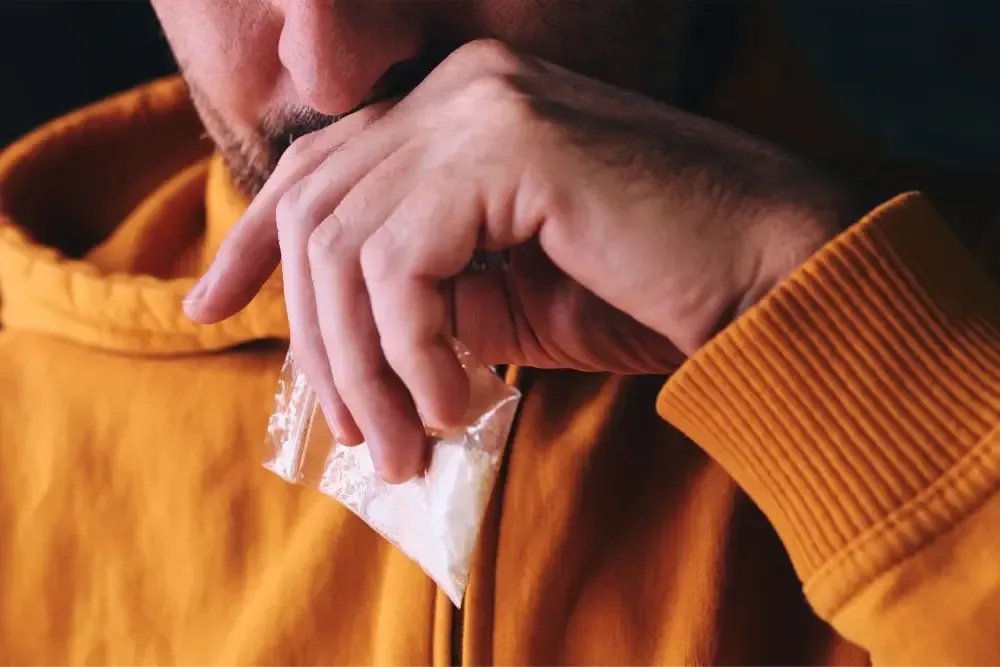Cocaine Addiction and Recovery
Advance Minds Blog
A safe space to explore subjects within the community such as mental health, substance abuse and personal identity.
Our safe space also provides the opportunity for real individuals to express their hardships and success through writing.
Cocaine Addiction and Recovery

Cocaine Addiction and Recovery: Simple Facts
Cocaine is a powerful stimulant drug that affects the central nervous system, leading to intense feelings of euphoria and increased energy. However, its highly addictive nature makes it one of the most dangerous illegal drugs.
Cocaine addiction can develop quickly, with devastating effects on physical and mental health.
This article outlines the simple facts about cocaine addiction and recovery, helping to raise awareness about the risks and providing essential information for those seeking treatment.
1. What Is Cocaine?
- Powerful stimulant: Cocaine is a highly addictive stimulant drug made from the coca plant, primarily found in South America.
- Forms of cocaine: Cocaine is typically found in two forms—powdered cocaine, which is snorted or injected, and crack cocaine, which is smoked.
- How it works: Cocaine increases levels of dopamine in the brain, creating intense feelings of euphoria, heightened energy, and alertness.
2. The Addictive Nature of Cocaine
- Highly addictive: Cocaine addiction can develop rapidly, often after just a few uses, due to the drug's powerful effects on the brain’s reward system.
- Short-lived high: The effects of cocaine are short-lived, lasting only 15 to 30 minutes, leading to frequent use and bingeing to maintain the high.
- Tolerance: Over time, users develop a tolerance to cocaine, requiring higher doses to achieve the same effects, which increases the risk of addiction.
3. The Short-Term Effects of Cocaine
- Euphoria and energy: Cocaine use leads to feelings of intense happiness, confidence, and alertness.
- Increased heart rate and blood pressure: Cocaine stimulates the nervous system, causing a rapid increase in heart rate and blood pressure.
- Restlessness and paranoia: Cocaine can cause jitteriness, agitation, and paranoia, especially with high doses or frequent use.
4. The Long-Term Effects of Cocaine Abuse
- Cardiovascular problems: Long-term cocaine use increases the risk of heart attacks, strokes, and other serious cardiovascular issues.
- Nasal damage: Snorting cocaine can lead to permanent damage to the nasal tissues, including nosebleeds and a deviated septum.
- Mental health decline: Prolonged use of cocaine can result in anxiety, depression, paranoia, and even psychosis, particularly during withdrawal periods.
5. Signs and Symptoms of Cocaine Addiction
- Cravings and compulsion: Individuals addicted to cocaine often experience strong cravings and an inability to control their use, despite negative consequences.
- Behavioral changes: Cocaine addiction can lead to changes in behavior, such as secrecy, isolation, aggression, and neglect of responsibilities.
- Physical symptoms: Weight loss, dilated pupils, frequent nosebleeds, and erratic sleep patterns are common signs of cocaine abuse.
- Financial and legal troubles: Due to the high cost of cocaine, many individuals with addiction may face financial difficulties or engage in illegal activities to support their habit.
6. The Dangers of Cocaine Use
- Overdose risk: Cocaine use carries a high risk of overdose, which can lead to seizures, heart attacks, strokes, or respiratory failure, all of which can be fatal.
- Polydrug use: Many people mix cocaine with other substances like alcohol or opioids, increasing the risk of overdose and complicating treatment efforts.
- Violence and accidents: Cocaine use impairs judgment and increases aggression, leading to a higher risk of accidents, injuries, and violent behavior.
7. Mental Health and Cocaine Addiction
- Dual diagnosis: Many individuals struggling with cocaine addiction also suffer from mental health disorders like depression, anxiety, or bipolar disorder, which can complicate treatment.
- Cocaine-induced psychosis: Long-term cocaine use can lead to psychotic episodes, including hallucinations, paranoia, and delusions.
- Suicidal thoughts: The emotional crash after using cocaine can result in deep depression, leading to an increased risk of suicidal ideation.
8. Treatment for Cocaine Addiction
- Detoxification: The first step in recovery is detox, where the body is allowed to rid itself of cocaine. This process often includes managing withdrawal symptoms such as fatigue, depression, and intense cravings.
- Behavioral therapy: Cognitive-behavioral therapy (CBT) is one of the most effective treatments for cocaine addiction, helping individuals change their thought patterns and behaviors related to drug use.
- Contingency management: This therapy provides rewards for staying drug-free and has been shown to be particularly effective for treating cocaine addiction.
- Support groups: Groups like Cocaine Anonymous (CA) provide peer support and a structured recovery plan for individuals battling cocaine addiction.
9. Cocaine Withdrawal Symptoms
- Depression and fatigue: Individuals withdrawing from cocaine often experience extreme fatigue, sadness, and lack of energy.
- Increased appetite: During withdrawal, many individuals notice a sudden increase in hunger, as cocaine suppresses appetite.
- Strong cravings: Cocaine withdrawal is marked by intense cravings for the drug, which can make relapse more likely without proper support.
- Restlessness and anxiety: Many people feel agitated or anxious as their bodies adjust to life without cocaine.
10. Preventing Relapse in Cocaine Recovery
- Ongoing therapy: Continued counseling and therapy are crucial to addressing underlying emotional or psychological issues that contributed to addiction.
- Avoiding triggers: Identifying and avoiding people, places, and situations that may trigger the desire to use cocaine is essential for maintaining sobriety.
- Building a support network: A strong support system of friends, family, and peer support groups can provide encouragement and accountability during recovery.
- Healthy coping mechanisms: Learning healthy ways to manage stress, such as exercise, mindfulness, or hobbies, can reduce the likelihood of relapse.
11. The Importance of Early Intervention
- Recognize the signs early: Identifying the early signs of cocaine addiction, such as increased use, cravings, or behavioral changes, can lead to quicker intervention and better recovery outcomes.
- Seek professional help: If you or a loved one is struggling with cocaine use, contacting an addiction specialist or seeking treatment from a rehab facility can make a significant difference in recovery success.
- Support from loved ones: Family members and friends can play a critical role in encouraging individuals to seek help and supporting them throughout the recovery process.
Final Thoughts:
Cocaine is a highly addictive drug that can have severe physical, mental, and social consequences. Addiction can develop quickly, leading to dangerous health risks, including overdose, heart problems, and mental health decline. However, recovery from cocaine addiction is possible with the right treatment, including detox, therapy, and a strong support system.
Recognizing the signs of cocaine addiction early and seeking professional help are crucial steps in overcoming addiction. With the right combination of treatment options, such as cognitive-behavioral therapy and peer support, individuals can break free from the cycle of addiction and build healthier, more fulfilling lives.
If you or someone you know is struggling with cocaine addiction, reaching out for help is the first step toward recovery. The sooner treatment is sought, the better the chances of achieving long-term sobriety and preventing relapse.
















